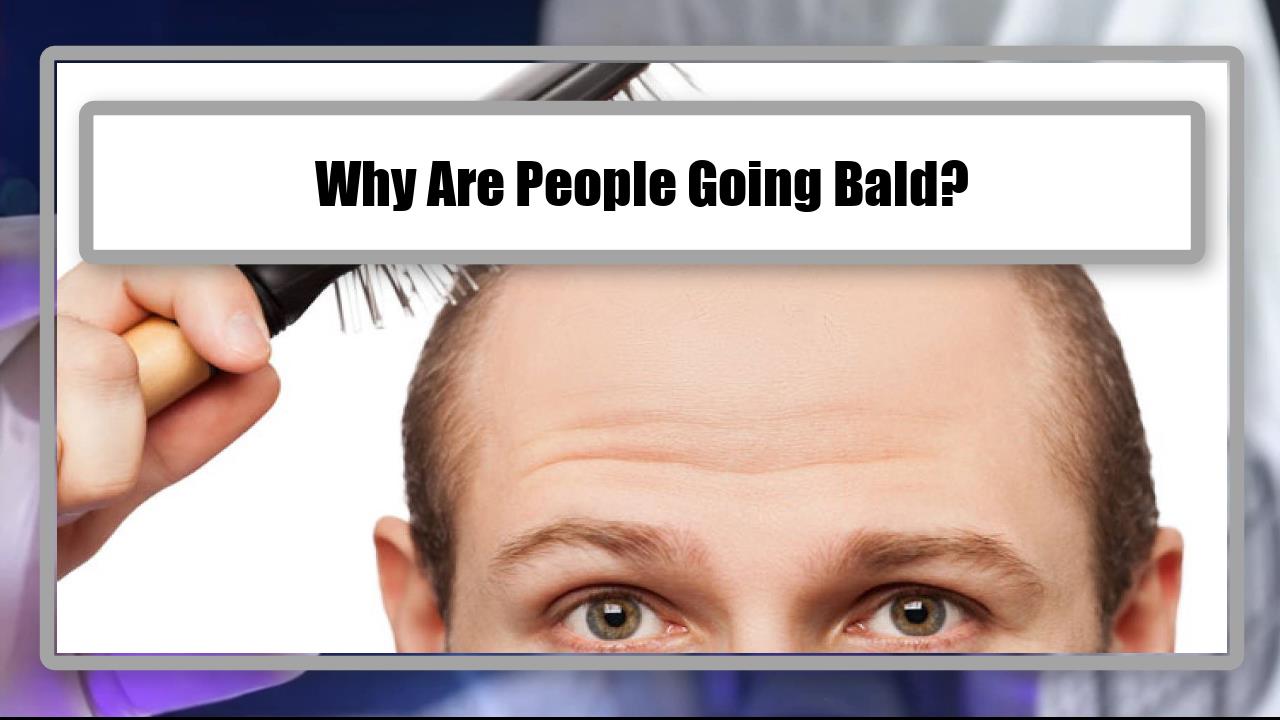Video:
Take our online poll:
AI Analysis:
Baldness, also known as alopecia, can have various causes, and it often results from a combination of genetic, hormonal, and environmental factors. The leading causes of baldness include:
1) Genetics (Androgenetic Alopecia): The most common cause of baldness in both men and women is hereditary hair loss, known as androgenetic alopecia. This condition is influenced by genes and hormones and can lead to pattern baldness. In men, it often manifests as a receding hairline and thinning at the crown, while in women, it can cause diffuse thinning.
2) Hormonal Changes: Hormonal imbalances can contribute to hair loss. In men, the hormone dihydrotestosterone (DHT) is a primary factor in male pattern baldness. In women, hormonal changes due to conditions like polycystic ovary syndrome (PCOS), pregnancy, childbirth, and menopause can lead to hair loss.
3) Aging: As people age, their hair growth cycle can slow down, leading to thinner and less dense hair. This is a natural part of the aging process and often contributes to hair loss.
4) Medical Conditions: Certain medical conditions can cause hair loss, including autoimmune diseases (e.g., alopecia areata), thyroid disorders (both hyperthyroidism and hypothyroidism), and scalp infections (e.g., ringworm).
5) Medications: Some medications can have hair loss as a side effect. This is often temporary and reversible once the medication is discontinued or the dosage adjusted.
6) Stress: Physical or emotional stress can lead to a condition called telogen effluvium, where a large number of hair follicles enter the resting phase simultaneously, resulting in significant hair shedding.
7) Nutritional Deficiencies: Inadequate intake of essential nutrients like iron, zinc, biotin, and protein can affect hair health and lead to hair loss.
8) Hairstyling and Hair Treatments: Excessive use of hair treatments, such as tight hairstyles (e.g., braids, ponytails), hot styling tools, and chemical treatments (e.g., perms, hair straightening), can damage hair and lead to breakage and hair loss.
9) Weight Loss: Rapid and extreme weight loss, often associated with crash diets or bariatric surgery, can trigger hair loss due to nutritional deficiencies and changes in hormone levels.
10) Environmental Factors: Exposure to environmental factors like pollution and UV radiation can weaken hair and contribute to hair loss.
It's important to note that the specific cause of baldness can vary from person to person. If you are experiencing significant hair loss and are concerned about it, it's advisable to consult with a healthcare professional or a dermatologist. They can help determine the underlying cause and recommend appropriate treatments or interventions based on your individual circumstances.
Chart:

References:


Comments